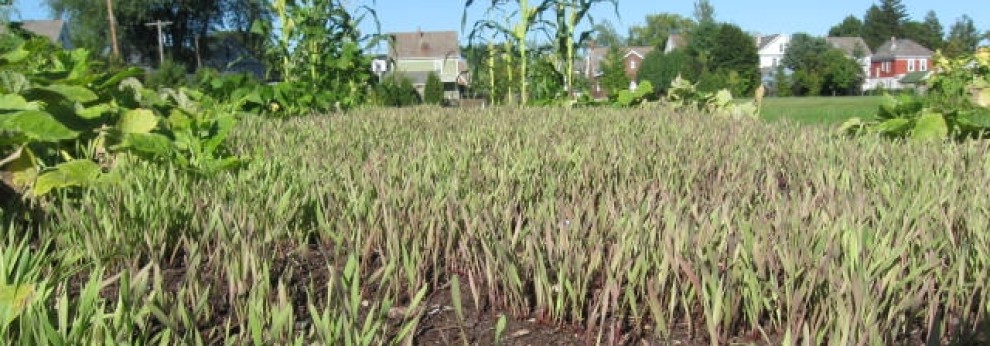 Maybe you noticed the Times Union article last week under the headline “Battle against invasive bug in Lake George intensifies.”
Maybe you noticed the Times Union article last week under the headline “Battle against invasive bug in Lake George intensifies.”
Maybe you learned by reading the article, or maybe you already knew, that the eastern hemlock, an integral part of New York forests, is under siege. The hemlock woolly adelgid, a tiny aphid-like insect from East Asia, is unfortunately doing great harm to hemlock trees by feeding on its sap.
Maybe you knew about this because you noticed the sickly looking hemlock trees scattered around the perimeter of Albany High School, such as in the accompanying photograph, and asked the biology student in the family what is going on and got a good answer. Or maybe not.
We’re not sure whether biology teachers and environmental science teachers at Albany High find a moment explore this issue with their classes. If not, however, it would seem like a missed opportunity.
For one thing, the threat posed by invasive species is enormous. Many have the potential to upset environmental relationships that developed over millions of years. We truly do not know what the consequence of that will be. So it would seem appropriate that educated people would have some exposure to the challenge at this point in human history. More than that, the hemlock is a really big deal in New York. It is the third most common tree in the state, according to Cornell, and plays possibly irreplaceable roles in forest ecosystems, from providing wildlife habitat to protecting water quality.
But the biggest opportunity offered by the hemlock trees that stand a couple feet from the older part of the high school building is the opportunity to engage students by showing them that what they study is meaningful. It isn’t clear that either the state’s education policymakers or the Vegetable Project’s partner school district’s curriculum masters give much thought to whether what they serve feels meaningful to students. We would respectfully suggest that the sense that lessons are meaningful, or relevant, could make all the difference in the world and really deserve consideration in a school district where just 52 percent of living environment – the formal name for the state’s basic biology class – students achieved grades indicating proficiency on the state’s Regents exam in 2019.
–Bill Stoneman



One response to “Opportunity to make teaching meaningful”